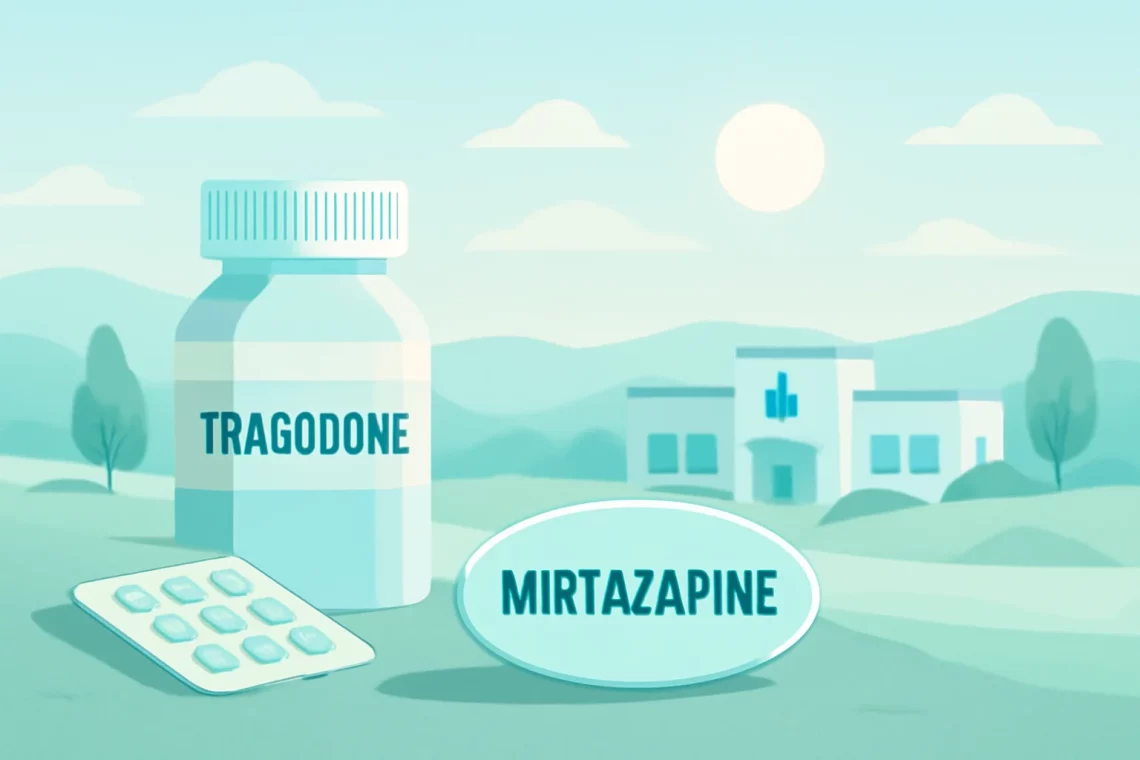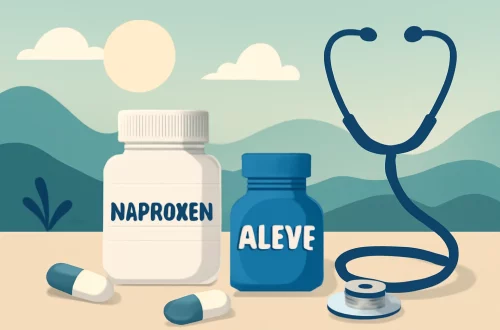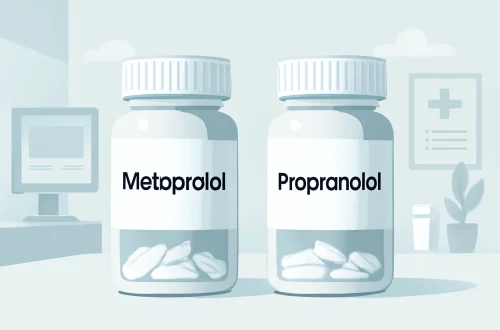
Trazodone vs Mirtazapine: Which Antidepressant Is Right for You?
Trazodone and Mirtazapine are two medications commonly prescribed for the treatment of various mental health conditions, primarily depression and anxiety. Both of these medications have gained recognition for their effectiveness, yet they operate through distinct mechanisms in the brain and have different profiles of side effects. Understanding the nuances of each medication can be crucial for patients and healthcare providers alike when making informed treatment choices.
Trazodone is classified as a serotonin antagonist and reuptake inhibitor (SARI), while Mirtazapine falls under the category of noradrenergic and specific serotonergic antidepressants (NaSSAs). Their differing modes of action influence not only their efficacy but also the types of side effects and interactions they may present. This complexity can make it challenging for individuals to determine which medication may be the most suitable for their specific situation.
As mental health issues become increasingly prevalent in society, the importance of understanding various treatment options, including pharmacological therapies, cannot be overstated. Whether it’s for managing chronic depression, anxiety disorders, or even sleep disturbances, the right medication can significantly enhance quality of life. This article aims to delve deeper into the characteristics, benefits, and considerations surrounding Trazodone and Mirtazapine, enabling readers to gain a clearer perspective on these two medications.
Understanding Trazodone
Trazodone has been used for decades as an antidepressant and is particularly noted for its utility in treating insomnia related to depression. Its mechanism of action is multifaceted; by inhibiting the reuptake of serotonin, it increases serotonin levels in the brain, which can elevate mood. Additionally, Trazodone acts on various serotonin receptors, which can contribute to its sedative effects. This makes it a popular choice not only for those suffering from depressive disorders but also for individuals who struggle with sleep disturbances.
One of the primary benefits of Trazodone is its lower risk of dependency compared to traditional sedatives or sleep medications. Patients often find that they can take Trazodone for sleep without developing a tolerance, making it a viable long-term solution for insomnia. However, it is essential to note that while Trazodone can be effective for sleep, it is generally not the first-line treatment for insomnia unless linked to a depressive disorder.
The side effects of Trazodone can vary significantly from person to person. Commonly reported side effects include drowsiness, dizziness, dry mouth, and gastrointestinal issues. In some cases, Trazodone can lead to more severe side effects, such as priapism, a rare condition that can cause prolonged erections. This side effect, while uncommon, necessitates immediate medical attention.
It’s also important for patients to consult with their healthcare providers about the potential interactions Trazodone may have with other medications. Certain medications can amplify the sedative effects of Trazodone, leading to increased drowsiness or other complications. Therefore, a thorough discussion regarding medical history and current medications is essential before starting Trazodone.
Overall, Trazodone offers a unique blend of antidepressant and sedative properties, making it a versatile option for many individuals. Its ability to address both mood and sleep issues can be particularly appealing, but patients should remain vigilant regarding side effects and interactions.
Understanding Mirtazapine
Mirtazapine is another widely prescribed medication for depression, and it differs significantly from Trazodone in its mechanism of action. As a NaSSA, Mirtazapine enhances noradrenergic and serotonergic neurotransmission by blocking specific receptors. This results in increased levels of norepinephrine and serotonin in the brain, which can lead to improved mood and a reduction in anxiety.
One of the notable benefits of Mirtazapine is its dual action, which not only alleviates symptoms of depression but also has a stimulating effect that may help with anxiety. Many patients report that Mirtazapine improves their overall sense of well-being and helps to reduce feelings of agitation or restlessness.
In addition to its antidepressant effects, Mirtazapine is often recognized for its ability to stimulate appetite, making it a suitable option for individuals whose depression has led to significant weight loss or decreased appetite. This can be particularly beneficial for older adults or those with chronic illnesses who may struggle with maintaining a healthy weight.
However, Mirtazapine is not without its drawbacks. Common side effects include weight gain, sedation, and dry mouth. The sedative effects can be beneficial for some but may pose challenges for others, particularly if taken during the day. The potential for weight gain can also be a concern, especially for individuals who are already struggling with weight management.
As with Trazodone, it is crucial for patients to discuss their complete medical history with their healthcare providers before starting Mirtazapine. Certain medications can interact with Mirtazapine, leading to increased side effects or diminished effectiveness.
In conclusion, Mirtazapine presents a valuable option for treating depression and anxiety, with its unique action on neurotransmitters providing distinct advantages. However, awareness of potential side effects and interactions is essential for optimizing treatment outcomes.
Comparing Trazodone and Mirtazapine
When comparing Trazodone and Mirtazapine, it is essential to consider various factors, including their mechanisms of action, side effects, efficacy, and patient-specific needs. Both medications serve as effective treatments for depression but do so in different ways. Trazodone’s primary focus is on serotonin reuptake inhibition and receptor antagonism, while Mirtazapine enhances norepinephrine and serotonin transmission through a different mechanism.
In terms of efficacy, both medications have demonstrated positive outcomes for patients with depression. However, Trazodone is often more effective for individuals who also experience insomnia as a symptom of their depression. Its sedative properties can help patients achieve restful sleep, which is critical for overall mental health. Conversely, Mirtazapine may be more suitable for individuals who need not only depression relief but also assistance with appetite and weight management.
Side effects can also play a significant role in medication choice. While Trazodone’s side effects may include sedation and dizziness, Mirtazapine is often associated with weight gain and increased appetite. Each patient’s experience with these medications can vary widely, making it crucial for individuals to monitor their responses and communicate with their healthcare providers about any concerns.
Ultimately, the choice between Trazodone and Mirtazapine should be made collaboratively between the patient and their healthcare provider, considering individual symptoms, side effects, and lifestyle factors. A personalized approach ensures that the chosen medication aligns with the patient’s unique needs and health goals.
Conclusion and Considerations
In summary, both Trazodone and Mirtazapine represent valuable options for treating depression and anxiety. Understanding their mechanisms, benefits, and potential side effects will empower patients to make informed decisions regarding their treatment plans.
While Trazodone may serve as a dual-action medication that assists with mood and sleep, Mirtazapine can offer a more comprehensive approach for those needing appetite stimulation and anxiety relief. Each medication has its unique profile, making it essential for individuals to engage in open discussions with their healthcare providers to find the best fit for their circumstances.
It’s crucial to remember that this article does not constitute medical advice. Always consult with a healthcare professional before starting or changing any medication regimen. Your health and well-being should always be the top priority, and tailored medical advice is essential for achieving the best outcomes.




